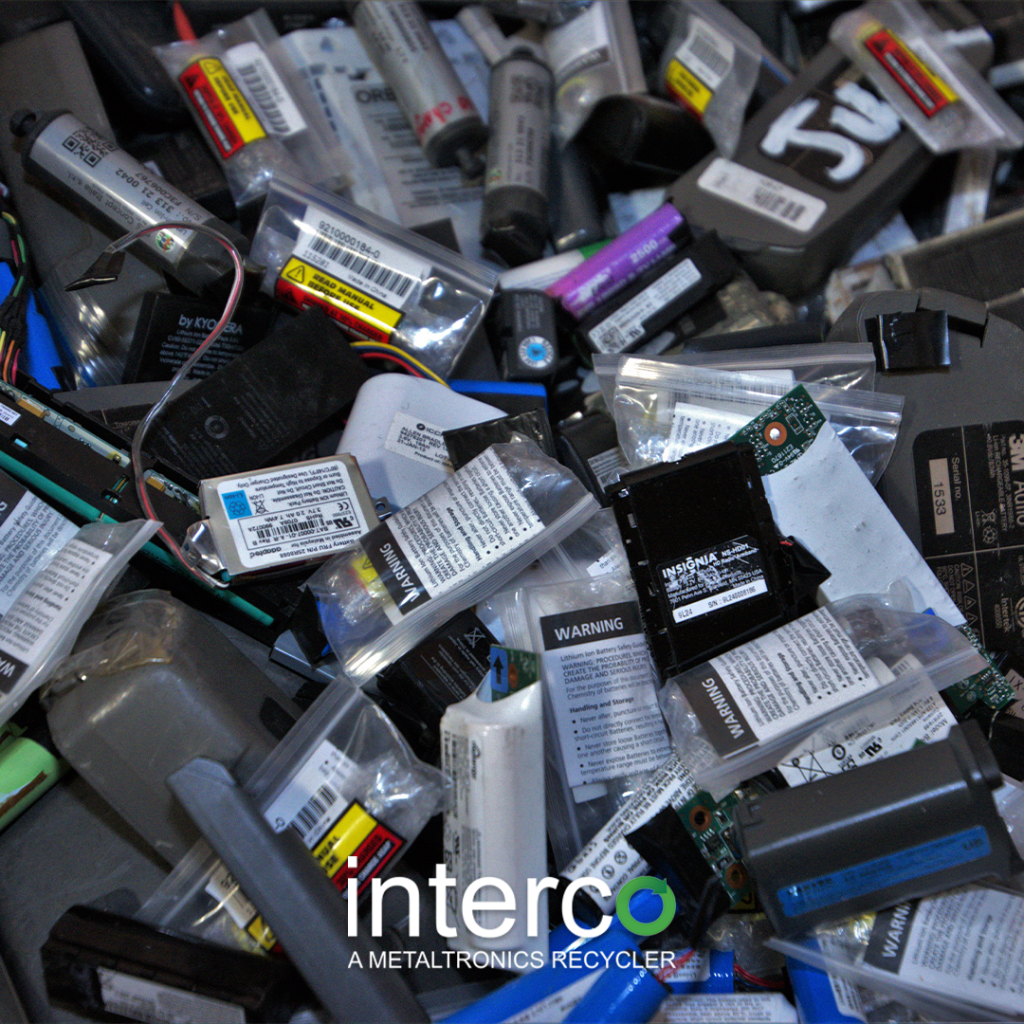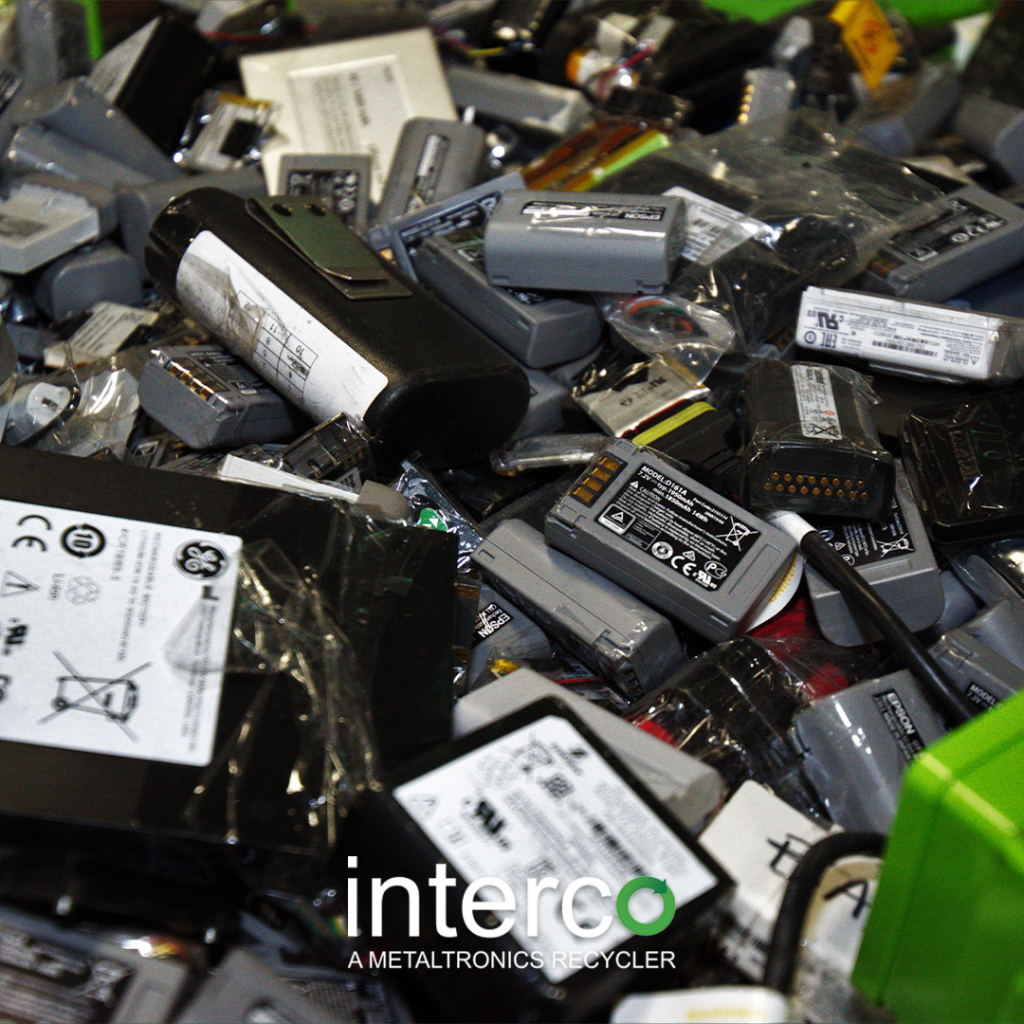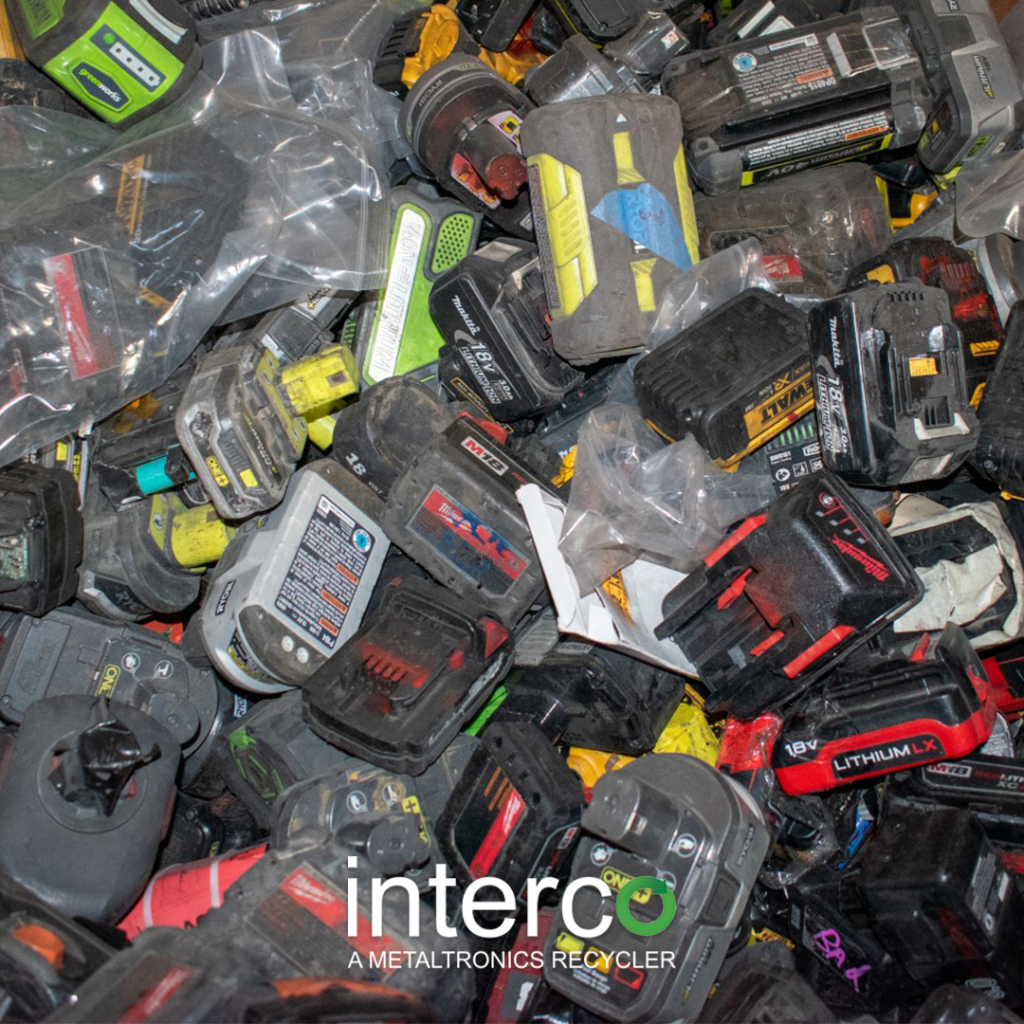Scrap Lithium-Ion Batteries: Waste to Profit

Scrap Lithium-Ion Batteries: Waste to Profit
Batteries from consumer and industrial electronics are being increasingly regulated because they can be a problematic material in the recycling stream. Experts follow rules and regulations for transporting lithium-ion batteries destined for recycling or disposal. Moreover, battery users can earn the best prices scrap lithium-ion batteries for recycling with Interco.
The team at Interco has a global network that offers the ability to provide the most competitive prices in North America.
Lithium-ion batteries are used in a wide variety of products, including cell phones, tablets, computers, electric vehicles, and more. According to a Portable Rechargeable Battery Association (PRBA) estimate, more than 5.5 billion lithium-ion battery cells are manufactured worldwide per year.
Battery recycling is a delicate process. If current trends for processing these spent batteries hold, most of those batteries may end up in landfills.
As lithium-ion battery recycling becomes more profitable, it will create results that lower costs for batteries and the vehicles they are put into. It will also help smooth out price fluctuations due to supply chain issues. Furthermore, it is worth acknowledging the rules on handling lithium-ion batteries.
Moreover, scrap lithium-ion batteries have a potential recycling value that can turn waste into profit.
Where to Find the Best Prices Scrap Lithium-Ion Batteries
Companies should look to a certified and reputable recycling center to dispose of their scrap batteries.
Lithium-ion batteries contain these rich minerals and valuable metals that allow for extended manufacturing of batteries if recycled. Therefore, these valuable metals and other materials can be recovered, processed, and reused.
Numerous valuable metals and minerals create a lithium-ion battery. These metals, like other batteries, include:
- Nickel
- Cobalt
- Copper

The market for recycling lithium-ion batteries alone could be worth $18 billion annually by 2030, Statista estimates, up from $1.5 billion in 2019.
Batteries are expensive and have a relatively short life span. As discarded batteries grow by the tonnage, collectors have looked to recycling centers to earn from the valuable metals and materials stored within the battery.
Interco recycles at the best prices scrap lithium-ion batteries with the goal of extracting the valuable metals from the battery. Before retrieving the metals, recyclers follow a recycling process.
- Prior to the recycling process, companies need to deactivate the batteries.
- Lithium-ion batteries are put in a specialized room that is oxygen-free.
- Hydrometallurgy is the process of extracting metals from ores.
- Next, the leaching process refers to the process of using aqueous solutions to extract metal from other metal-bearing materials.
- Separate the battery components into three different items. Thus, these items may include cobalt, steel, aluminum, copper, plastic.
- As a result, recyclers retrieve these valuable metals, and companies sell them.
Battery users often replace their spent batteries after aging, overuse, or overcharging occurs.

Recycling Scrap Lithium-Ion Batteries
Shippers must take precautionary steps when transporting lithium-ion batteries. In fact, anyone shipping batteries must identify the battery type first to ensure proper processing.
Recycling techniques recover 95% to 98% of a battery’s nickel, cobalt, aluminum, graphite, and more than 80% of its lithium. Much of those materials are sold back to companies to make new Tesla batteries and other materials.
Batteries that are not transported to a recycling center end up in a landfill. As a result, Interco performs the recycling process for lithium-ion batteries carefully on a facility comprised of five buildings — approximately 400,000 square feet total — on more than 35 acres.
Interco, as an ISO 9001 Quality Management System certified company, continues an international-accepted uniform quality system, supplies the highest levels of customer service, and manages its material in the highest regard. Furthermore, all material will be recycled by approved ISO 14001 Environmental Management and ISO 45001 Occupational Health and Safety best practices. As a result, Interco confirms the exact weights and records upon receipt, and we issue a written certificate of recycling.
Interco Scraps Lithium-Ion Batteries
Overall, Interco offers your business the opportunity to earn and recycle lithium-ion batteries. Finally, recycling enables the recovery of rich metals and reduces the harmful effects on the environment that improper disposal causes. Additionally, the team at Interco accepts, processes, trades, and recycles an array of nonferrous metals. Interco recycles batteries of all shapes, sizes, and chemistry. Thus, the team at Interco continues to lead the way in terms of innovative industrial recycling solutions. Consequently, to discover more about how to recycle lithium-ion batteries, click here.